Filter by
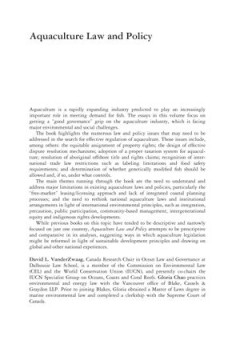
Aquaculture Law and Policy
The aquaculture industry is fast expanding around the globe and causing major environmental and social disruptions. The volume is about getting a 'good governance' grip on this important industry. The book highlights the numerous law and policy issues that must be addressed in the search for effective regulation of aquaculture. Those issues include among others: the equitable and fair assignmen…
- Edition
- -
- ISBN/ISSN
- 9780203966556
- Collation
- -
- Series Title
- -
- Call Number
- 639.8 AQU a
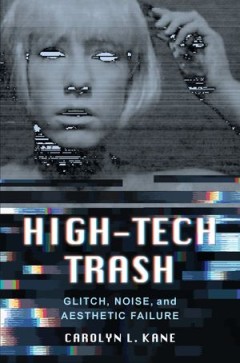
High-Tech Trash : Glitch, Noise, and Aesthetic Failure
High-Tech Trash analyzes creative strategies in glitch, noise, and error to chart the development of an aesthetic paradigm rooted in failure. Carolyn L. Kane explores how technologically influenced creative practices, primarily from the second half of the twentieth and first quarter of the twenty-first centuries, critically offset a broader culture of pervasive risk and discontent. In so doing,…
- Edition
- -
- ISBN/ISSN
- 9780520974494
- Collation
- -
- Series Title
- -
- Call Number
- 700.1 KAN h
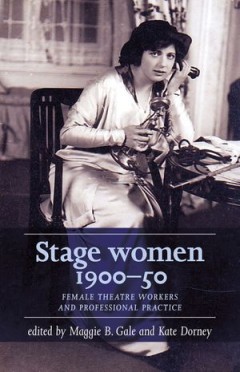
Stage women, 1900–50
Stage women, 1900–50 explores the many ways in which women conceptualised, constructed and participated in networks of professional practice in the theatre and performance industries between 1900 and 1950. A timely volume full of original research, the book explores women’s complex negotiations of their agency over both their labour and public representation, and their use of personal and p…
- Edition
- -
- ISBN/ISSN
- 9781526147271
- Collation
- -
- Series Title
- -
- Call Number
- -
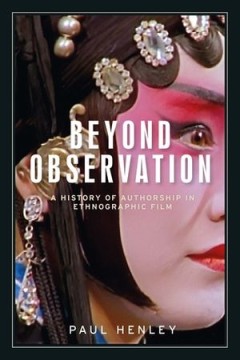
Beyond observation A history of authorship in ethnographic film
Beyond Observation is structured by the argument that the 'ethnographicness' of a film should not be determined by the fact that it is about an exotic culture - the popular view - nor because it has apparently not been authored - a long-standing academic view - but rather because it adheres to the norms of ethnographic practice more generally. On these grounds, the book covers a large number of…
- Edition
- -
- ISBN/ISSN
- 9781526147295
- Collation
- -
- Series Title
- -
- Call Number
- -
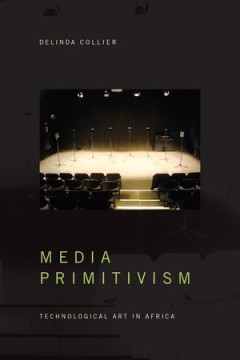
Media Primitivism Technological Art in Africa
In Media Primitivism Delinda Collier provides a sweeping new understanding of technological media in African art, rethinking the assumptions that have conceptualized African art as unmediated, primary, and natural. Collier responds to these preoccupations by exploring African artworks that challenge these narratives. From one of the first works of electronic music, Halim El-Dabh’s Ta’abir A…
- Edition
- -
- ISBN/ISSN
- 9781478090434
- Collation
- -
- Series Title
- -
- Call Number
- -
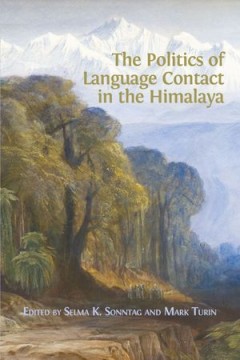
The Politics of Language Contact in the Himalaya
"This highly original and timely collection brings together case studies from salient areas of the Himalayan region to explore the politics of language contact. Promoting a linguistically and historically grounded perspective, The Politics of Language Contact in the Himalaya offers nuanced insights into language and its relation to power in this geopolitically complex region. Edited by respecte…
- Edition
- -
- ISBN/ISSN
- 9781783747061
- Collation
- -
- Series Title
- -
- Call Number
- -
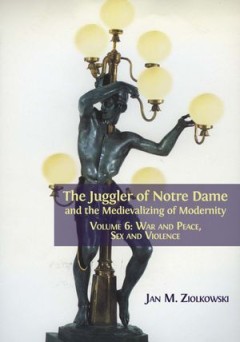
The Juggler of Notre Dame and the Medievalizing of Modernity: Volume 6 War a…
"This ambitious and vivid study in six volumes explores the journey of a single, electrifying story, from its first incarnation in a medieval French poem through its prolific rebirth in the nineteenth and twentieth centuries. The Juggler of Notre Dame tells how an entertainer abandons the world to join a monastery, but is suspected of blasphemy after dancing his devotion before a statue of the …
- Edition
- -
- ISBN/ISSN
- 9781783745418
- Collation
- -
- Series Title
- -
- Call Number
- -
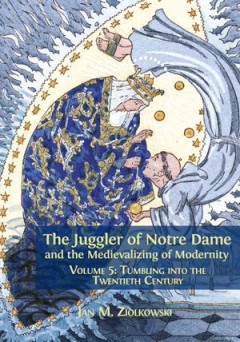
The Juggler of Notre Dame and the Medievalizing of Modernity: Volume 5 Tumbl…
The ANZUS Alliance was a defence arrangement between Australia, New Zealand and the United States that shaped international policy in the aftermath of the Second World War and the early stages of the Cold War. Forged by influential individuals and impacting on global events including the Japanese Peace Treaty, the Korean War and the Suez Crisis, the ANZUS Alliance was a crucial factor in the se…
- Edition
- -
- ISBN/ISSN
- 9781783745364
- Collation
- -
- Series Title
- -
- Call Number
- -
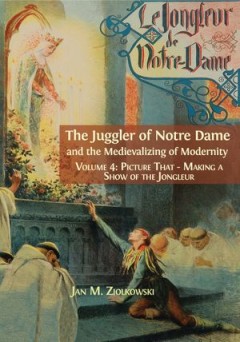
The Juggler of Notre Dame and the Medievalizing of Modernity: Volume 4 Pictu…
Born into a distinguished aristocratic family of the old Habsburg Empire, Hermynia Zur Mühlen spent much of her childhood and early youth travelling in Europe and North Africa with her diplomat father. Never comfortable with the traditional roles women were expected to play, she broke as a young adult both with her family and, after five years on his estate in the old Czarist Russia, with her …
- Edition
- -
- ISBN/ISSN
- 9781783745319
- Collation
- -
- Series Title
- -
- Call Number
- -
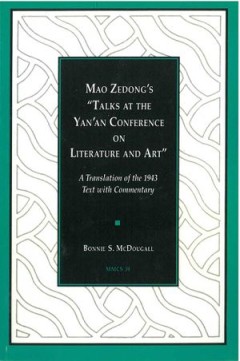
Mao Zedong’s “Talks at the Yan’an Conference on Literature and Art: A T…
The writings of Mao Zedong have been circulated throughout the world more widely, perhaps, than those of any other single person this century. The “Talks at the Yan’an Conference on Literature and Art” has occupied a prominent position among his many works and has been the subject of intense scrutiny both within and outside China. This text has undoubted importance to modern Chinese liter…
- Edition
- -
- ISBN/ISSN
- 9780472901333
- Collation
- -
- Series Title
- -
- Call Number
- 700 MAO m
 Computer Science, Information & General Works
Computer Science, Information & General Works  Philosophy & Psychology
Philosophy & Psychology  Religion
Religion  Social Sciences
Social Sciences  Language
Language  Pure Science
Pure Science  Applied Sciences
Applied Sciences  Art & Recreation
Art & Recreation  Literature
Literature  History & Geography
History & Geography